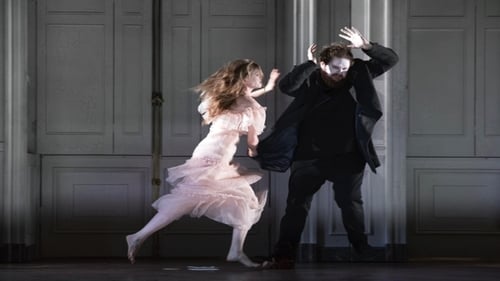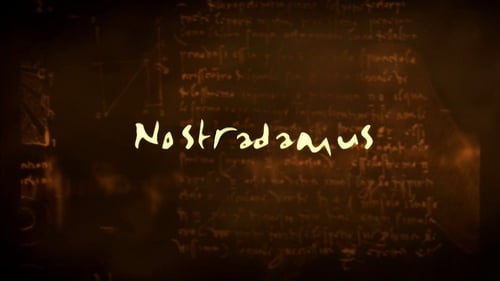Barbara Hannigan
Nacimiento : 1971-05-08, Waverley, Nova Scotia, Canada
Historia
Barbara Hannigan is a Canadian soprano and conductor, known for her performances of contemporary opera. She studied music at the University of Toronto, the Banff Centre for the Arts, and the Royal Conservatory of The Hague.

Herself
Part of a CD+DVD set released by Tzadik. Recorded at the powerful organ at Henry LeBoeuf Hall, Bozar in Brussels, this is one of Zorn’s most beautiful and personal solo performances—a dramatic musical reading of the epic Faust legend. Featuring a guest appearance by the sensational vocalist Barbara Hannigan, who is improvising with Zorn for the very first time. No one plays the organ quite like Zorn and many of his unusual techniques, usually hidden in performance, are presented in close focus. Beautifully filmed by state of the art equipment, this is a wild and colorful concert by two mavericks of new music.

Herself
What drives men and women to risk their own lives to save those of others? Fuoco Sacro tells the story of the Vigili del Fuoco, the Italian fire department, and does it through the voices of the people who, over half a century of history, have tackled with competence and a spirit of self-sacrifice the greatest calamities that Italy has tragically had to experience at firsthand.

Lulu
Alban Berg explores the power that Eros and Thanatos, in their rawest forms, have over our lives: Lulu, a femme fatale, will do anything to get ahead in a man’s world, but she ends up being destroyed.

Self
Barbara Hannigan is a renowned soprano and exceptionally talented artist and musician from Canada, who recently has begun an international career as conductor. Making its North American premiere, Taking Risks shows Hannigan preparing to conduct her first opera, Stravinsky’s masterpiece The Rake’s Progress. From auditions to opening night, we follow the journey of a dedicated, passionate, and perceptive woman, taking a behind-the-scenes look at her creative process, with many moments of excitement and magic.

Bérénice
Titus and Berenice love each other; under the watchful eye of Antiochus, the hopeless lover, they try yet refuse to understand each other. Taking up the “majestic sadness” of these alexandrines, among the greatest verses in the French language, Michael Jarrell amplifies the power of words, making them a vehicle for spaces and identities that, from Rome to Jerusalem, are unceasingly questioned.

Ophelia
Brett Dean's multi-award-winning opera received its world premiere at Glyndebourne Festival 2017. The world premiere recording of Brett Deans new opera based on Shakespeares best-known tragedy: To be, or not to be. This is Hamlets dilemma, and the essence of Shakespeares most famous and arguably greatest work, given new life in operatic form in this original Glyndebourne commission. Thoughts of murder and revenge drive Hamlet when he learns that it was his uncle Claudius who killed his father, the King of Denmark, then seized his fathers crown and wife. But Hamlets vengeance vies with the question: is suicide a morally valid deed in an unbearably painful world?

Her
Running through Bartók’s disenchanted tale, whose haunting music was initially condemned as unplayable, and the expression of despair in Poulenc’s monologue, the director Krzysztof Warlikowski perceives a shared dramatic thread, a shared feminine consciousness and a shared sense of imprisonment and suffocation: for the woman who penetrates the confines of Bluebeard’s castle and Elle, the woman who clings to a telephone conversation with a man as the only thing worth living for, are condemned to share the same fate. And this man she speaks to, does he really exist? Unless the director has interpreted Cocteau’s words to the letter and the telephone has become a “terrifying weapon that leaves no trace, makes no noise”…

Isabel
Opera based on the story of Edward II and Piers Gaveston. Music by George Benjamin, libretto by Martin Crimp. BBC broadcast of the 2018 premiere at the Royal Opera House, the composer conducting, prefaced by commentary and interviews.

Self/Conductor/Soprano
When a woman steps onto the conductor's podium, she is always one of the first: the first to lead a world-class orchestra, the first to conduct the closing night of London's Proms, the first to win the German Conductor Prize. It seems as though the world of orchestral conducting might finally be ready to change its attitudes toward female conductors.

In a poetic composition of song, narration, and images, this film follows Canadian soprano and orchestra conductor Barbara Hannigan, accompanied by the Ludwig Orchestra, as she records her album Crazy Girl Crazy. Why did she choose these three pieces, in essence so different, but which intimately resonate with her: Berio’s Sequenza III, Berg’s Lulu Suite, and Gershwin’s Girl Crazy? With this musical voyage peering into a world of precision and sharing, where a passionate woman brings forth a vocal tour de force, Mathieu Amalric, César winner for Best Actor in 2005 and 2008, shows us once more his talent behind the camera with this new opus that goes beyond a mere artist’s portrait.

Mélisande

In “C’est presque au bout du monde”, I explore a mystery which fascinates me : where do these inhuman voices come from ? Where in the body is the source of this unsettling anomaly of singing ? - Mathieu Amalric

Self
The film follows Canadian singer, conductor and actress Barbara Hannigan backstage in an attempt to reveal the secret behind this wild, fearless and remarkably versatile woman.

The audience in the upper crust concert venue KKL at the Lucerne Festival must have felt bemused: after singing classical Mozart arias, blonde soprano Barbara Hannigan returns to the stage in a dominatrix costume, black wig and PVC boots and proceeds to sing and conduct György Ligeti’s "Mysteries of the Macabre". The audience celebrates Barbara Hannigan’s disturbing performance with standing ovations. Critics are struggling to describe her captivating impact. Barbara Seiler‘s film "I’m a creative animal" follows her backstage in an attempt to reveal the secret behind this wild, fearless and remarkably versatile woman.

When Written on Skin had its premiere at the 2012 Festival d'Aix-en-Provence, conducted by George Benjamin himself, it received a standing ovation. The opera's arrival at Covent Garden in 2013 was eagerly anticipated, and provided audiences with the opportunity to experience the work of two of Britain's greatest living artists. Benjamin previously collaborated with playwright Martin Crimp on Into the Little Hill, a magical retelling of the Pied Piper fairytale, and for this new work they joined forces with acclaimed stage director Katie Mitchell. For all three, the production marked their main-stage debut at the Royal Opera House. The tale, inspired by a medieval legend, tells of an ill-fated troubadour, drawn into a liaison with an innocent maiden. But they are observed by the jealous eye of her protector, who wreaks a shocking revenge on the young couple. Written on Skin draws on a 12th-century Occitan legend about the troubadour Guillaume de Cabestanh.

Premiered in Stockholm in 1978, the work is based on a play by Michel de Ghelderode (1898-1962) and unfolds in an imaginary land inspired by the famous Dutch painter Pieter Brueghel the Elder: Nekrotzar, the Grand Macabre, announces the end of the world; but in a land ruled by eros, alcohol and corruption, his plan to unleash the Apocalypse bursts like a soap bubble. LIVE RECORDING FROM THE GRAN TEATRE DEL LICEU, BARCELONA, 2011

Constance
An irreverent and hilarious spin on opera, domestic drama and the hallowed institutions of love and marriage, Burnt Toast is an hour-long television opera comprised of a series of eight comic operas each depicting a different stage of romantic love. The relationships depicted run the gamut: from the passionate to the fantasized, the bored and of course the dead relationship, each as recognizable as the last.

Wife
A humourous "domestic opera" about an upwardly mobile couple in their mid thirties who can't resolve an argument about the cap being left off the toothpaste.

Musician
A medieval cult travels to the 20th century and kills people in an attempt to bring about the end of the world. The policeman must stop them by summoning the spirit of Nostradamus.









